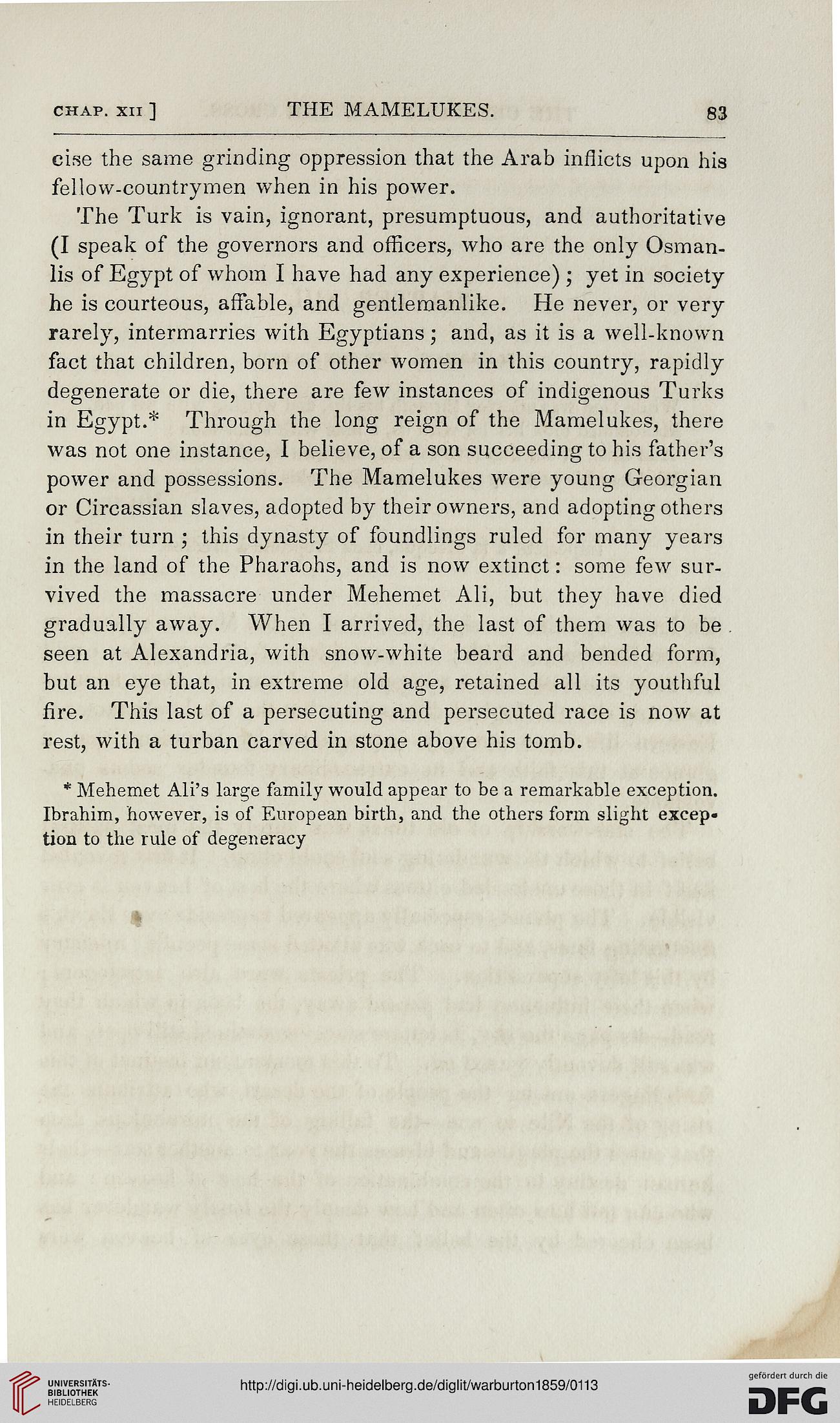CHAP. XII ]
THE MAMELUKES.
83
cise the same grinding oppression that the Arab inflicts upon his
fellow-countrymen when in his power.
The Turk is vain, ignorant, presumptuous, and authoritative
(I speak of the governors and officers, who are the only Osman-
lis of Egypt of whom I have had any experience) ; yet in society
he is courteous, affable, and gentlemanlike. He never, or very
rarely, intermarries with Egyptians; and, as it is a well-known
fact that children, born of other women in this country, rapidly
degenerate or die, there are few instances of indigenous Turks
in Egypt.* Through the long reign of the Mamelukes, there
was not one instance, I believe, of a son succeeding to his father's
power and possessions. The Mamelukes were young Georgian
or Circassian slaves, adopted by their owners, and adopting others
in their turn ; this dynasty of foundlings ruled for many years
in the land of the Pharaohs, and is now extinct: some few sur-
vived the massacre under Mehemet Ali, but they have died
gradually away. When I arrived, the last of them was to be
seen at Alexandria, with snow-white beard and bended form,
but an eye that, in extreme old age, retained all its youthful
fire. This last of a persecuting and persecuted race is now at
rest, with a turban carved in stone above his tomb.
* Mehemet Ali's large family would appear to be a remarkable exception.
Ibrahim, however, is of European birth, and the others form slight excep-
tion to the rule of degeneracy
*
THE MAMELUKES.
83
cise the same grinding oppression that the Arab inflicts upon his
fellow-countrymen when in his power.
The Turk is vain, ignorant, presumptuous, and authoritative
(I speak of the governors and officers, who are the only Osman-
lis of Egypt of whom I have had any experience) ; yet in society
he is courteous, affable, and gentlemanlike. He never, or very
rarely, intermarries with Egyptians; and, as it is a well-known
fact that children, born of other women in this country, rapidly
degenerate or die, there are few instances of indigenous Turks
in Egypt.* Through the long reign of the Mamelukes, there
was not one instance, I believe, of a son succeeding to his father's
power and possessions. The Mamelukes were young Georgian
or Circassian slaves, adopted by their owners, and adopting others
in their turn ; this dynasty of foundlings ruled for many years
in the land of the Pharaohs, and is now extinct: some few sur-
vived the massacre under Mehemet Ali, but they have died
gradually away. When I arrived, the last of them was to be
seen at Alexandria, with snow-white beard and bended form,
but an eye that, in extreme old age, retained all its youthful
fire. This last of a persecuting and persecuted race is now at
rest, with a turban carved in stone above his tomb.
* Mehemet Ali's large family would appear to be a remarkable exception.
Ibrahim, however, is of European birth, and the others form slight excep-
tion to the rule of degeneracy
*





